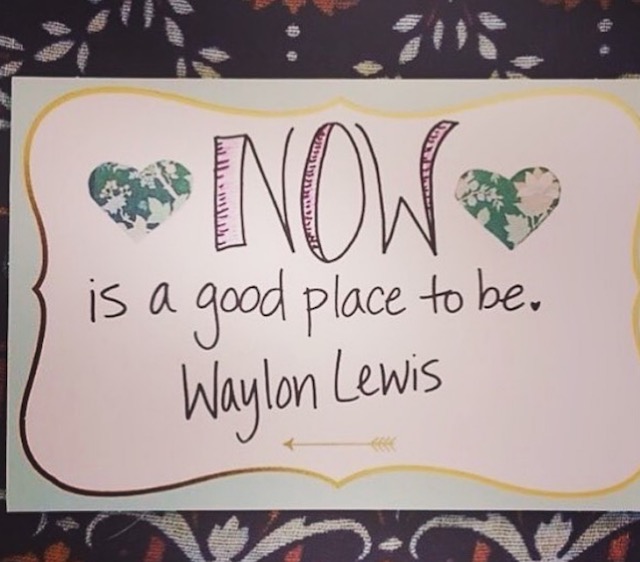Perched on our pillows with our legs just so, the conditions are perfect for the best meditation ever.
Our minds are aware that this will bring us back to center. We need this. We deserve this. Self-care in action—enlightenment, here we come. The lights are dim. The room is quiet and calm, and all phones are on silent.
We wait for a low, soothing voice to announce a yogi version of: Ready? Set. Go!
Then, we close our eyes and breathe.
We start to notice the rhythm of our breathing.
We are now focusing in on different parts of our bodies where the breath is traveling.
Oh yeah, we’re getting centered already.
We. Got. This.
As an overeager, high achiever, I had thoughts like this when beginning my path to mindfulness. Mastering meditation was at the top of my list. I was going to win this peace of mind for myself, and it was about time.
Nowadays, I call bullsh*t; that was a losing mentality.
Being a person who likes to play, I like to win. Oh, I absolutely laugh at myself and shake hands with the winners when it isn’t my day too. Yet when my mind and body are aligned, and I bring home the “W”—it’s euphoric.
Meditation is not a game.
There are no winners or losers. It does not work because of playbooks. Wishing for a spiritual awakening, a healing, or an answer after we meditate is pure fantasy. Whenever we sit down to meditate, what will transpire is unknown to us. It may be boring, tiring, and hard as hell to sit still. It may be so calming we doze off until we tip and snap awake again. The sooner we understand this, the more mindful we become.
Meditation isn’t a competition.
It is a practice. Each time we sit with ourselves, new thoughts arise. We notice them, and that is it. Practice doesn’t makes perfect either. As a human, noticing our thoughts without emotion or attachment is sometimes impossible. Yet, that disruption may teach us something if we let it.
“Nothing ever goes away until it has taught us what we need to know…nothing ever really attacks us except our own confusion. Perhaps there is no solid obstacle except our own need to protect ourselves from being touched. Maybe the only enemy is that we don’t like the way reality is now and therefore wish it would go away fast. But what we find as practitioners is that nothing ever goes away until it has taught us what we need to know. if we run a hundred miles an hour to the other end of the continent in order to get away from the obstacle, we find the very same problem waiting for us when we arrive. It just keeps returning with new names, forms, manifestations until we learn whatever it has to teach us about where we are separating ourselves from reality, how we are pulling back instead of opening up, closing down instead of allowing ourselves to experience fully whatever we encounter, without hesitating or retreating into ourselves.” ~ Pema Chödrön, When Things Fall Apart
Hearing someone say they can’t meditate, that they aren’t good at it, or that they failed at it means a certain value or expectation was not met. The ego was meditating.
How do I know? My ego told me so.
Once upon a time, I wasn’t “good” at meditation or yoga. I giggled too much and preferred to be active when I exercised. I passive-aggressively scoffed at the idea of me doing that. It was a, “I love you all, but I’ll catch ya’ after class” kind of thing.
Thankfully, when my words met a confused and irritated reaction from a friend’s face years ago, I looked inward. I recognized the sound of my own fear. What if I’m not good? How could I fit in? What if I fail? What do I wear? What if I fall asleep? How do I test if these pants are the see-through kind? Hello? My ego was calling.
How do we face those egotistical, fear-based thoughts once we hear them?
Here are three questions to ask ourselves before beginning a meditation practice:
>> Where is our focus? Outside of ourselves judging everything in our experience, while avoiding looking inward due to fear?
>> Are we thinking competitively?
>> What fantasies or expectations do we have about the outcome of our practice?
In order to practice, we must keep our eyes on our own mat. We need leave our egos, projections, or past experiences at the door. Once all that is free from us, a mindful shift just may find us when we least expect it.
“If it weren’t for my mind, my meditation would be excellent.” ~ Pema Chödrön
Have stories to share about your first meditation sessions? We’d love to hear from you.
~
Relephant:
The Simple Technique that Changed My Life.
Meditation FAQs: How do I Stop Thinking?
Author: Kate Fleming
Image: Elephant Journal Instagram
Editor: Travis May
Copy Editor: Callie Rushton









Read 0 comments and reply